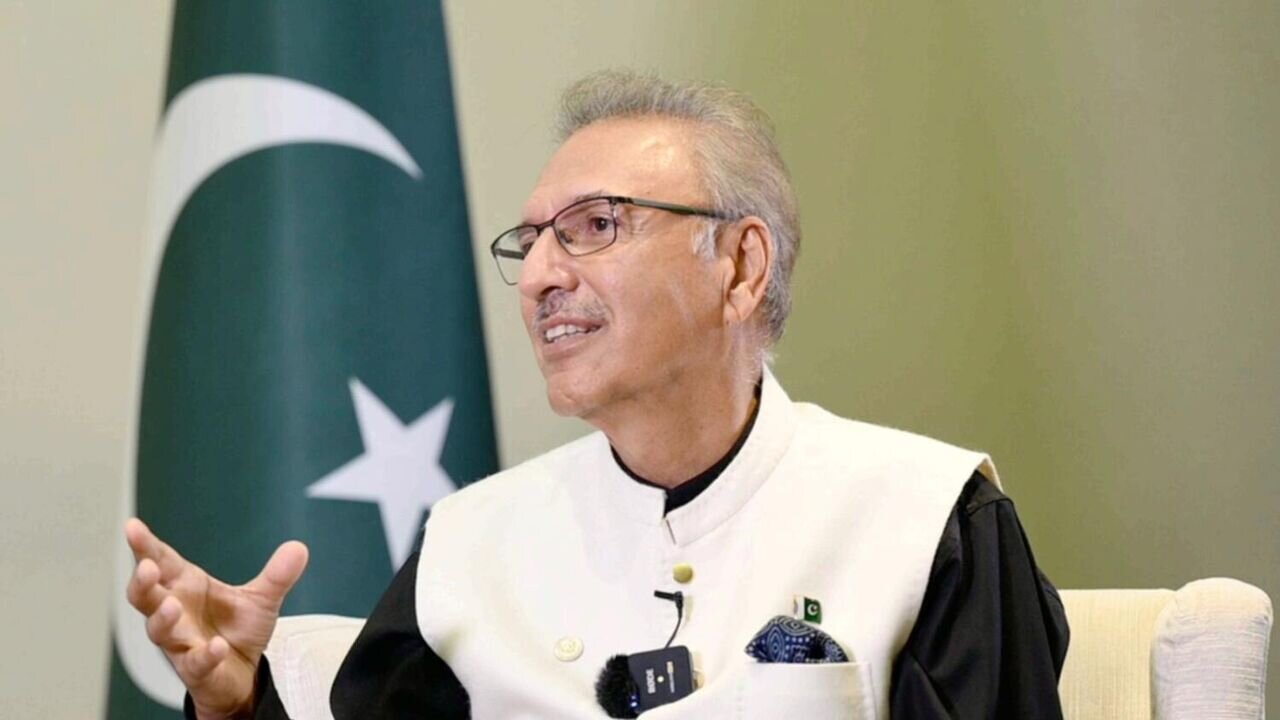Pakistan president says Iran-Saudi agreement will go down in history

TEHRAN – Pakistani President Arif Alvi has hailed the recent agreement between Iran and Saudi Arabia, saying the agreement will go down in history.
Alvi considered the wisdom of the Islamic Republic of Iran and Saudi Arabia to resume diplomatic relations as a great achievement and said that the reconciliation and peace of these two countries will remain in history.
The Pakistani president made the remarks in a note to Iran’s official news agency IRNA.
Regarding the recent events in Pakistan, especially the rise in political tensions and hostility between parties, he wrote that all stakeholders should put the spirit of tolerance and self-restraint at the forefront of their work, because without mutual understanding and tolerance, it is not possible to end the crisis.
He emphasized that everyone should reconsider their thoughts in order to establish peace and reconciliation, and a clear example of that is the significant and great peace between Iran and Saudi Arabia, which made the two countries reach the ideal goal.
Praising the positive role of China and its efforts in promoting reconciliation between Tehran and Riyadh, the president of Pakistan added, “We salute the leaders of Iran and Saudi Arabia, who, through revision and fundamental change, led to a peace that will be recorded in history.”
He noted, “The wisdom and constructive thinking of the great statesmen of Iran and Saudi Arabia made the preparations to end several decades of hostility. So why shouldn't we use this approach in Pakistan, so we should be calm and deal with issues with tolerance.”
In late April, Alvi had welcomed the Iranian-Saudi agreement in a meeting with Iranian Ambassador to Pakistan Seyed Mohammad Ali Hosseini. “While appreciating the landmark initiative taken by Iran and Saudi Arabia to normalize diplomatic relations, the President said that normalization of relations between the two countries would lead to peace and stability in the Middle East. The meeting also underscored the need for promoting counter-terrorism cooperation to eliminate the menace of terrorism,” the official website of the Pakistani presidency said at the time.
In the meeting, Alvi called for increasing cooperation with Iran in all areas of mutual interest. He said that Pakistan greatly valued its fraternal relations with Iran as both brotherly countries shared historic linkages and cultural affinities, besides having commonalities of views on issues of regional and international significance. He emphasized the need for increasing economic cooperation and expanding the trade volume for the mutual benefits of the two countries.
Recently, an Iranian parliamentary delegation paid a visit to Pakistan. A senior Iranian lawmaker who led the delegation has said that the Iranian parliament will table a special package for the development of relations between Iran and Pakistan.
The lawmaker, Vahid Jalalzadeh, who is the head of the Iranian Parliament’s National Security and Foreign Policy Committee, made the remarks at a gathering hosted by Pakistan Council on Foreign Relations in Karachi.
Jalalzadeh visited Pakistan at the head of a parliamentary delegation.
Lauding the cultural commonalities between Iran and Pakistan, he said, “Persian language is a strong factor of the proximity of two neighboring countries and both countries are proud to recognize each other as the first country.”
Jalalzadeh added, “As Ayatollah Raisi, the president of the Islamic Republic of Iran, has emphasized, we do not consider any limits to expand bilateral cooperation with Pakistan in all fields. The heads of the two countries have had two official meetings in the last one year and we will see another meeting soon.”
He noted, “We will certainly put a special case for the development of relations with Pakistan on the table of the Islamic Majlis. The main focus is on expanding commercial and economic cooperation between the two countries and encouraging governments to use mutual capabilities, especially persuading the private sector in order to identify the capacities of Iran and Pakistan.
